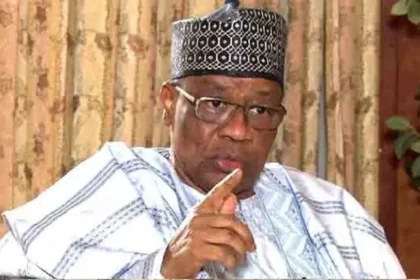Years after it was privatised, the power sector has failed to deliver the desired result, the Federal Government said yesterday.
Vice President Yemi Osinbajo, who delivered the verdict, spoke of other options to re-engineer the sector for effective power supply to meet domestic and industrial needs of Nigerians. He was not specific on the options.
Prof Osinbajo laid it bare in his May Day address to workers at the Eagle Square in Abuja. He said the government was not happy that several years after the sector was privatised, it has failed to deliver.
The Power Holding Company of Nigeria (PHCN) Plc. was unbundled in 2013 during the administration of Dr. Goodluck Jonathan. It was to allow for private sector involvement in the generation and distribution of power.
The vice president, who represented President Muhammadu Buhari, said the government was “strongly committed to changing the narratives” in the power sector.
He said: “Today, that sector, after it was privatised, still remains stalled in delivering power to many Nigerian homes and businesses.
“We must act as a matter of national importance and we are committed to doing so, to work and re-engineer the sector for much more effective performance. Workers shall be called upon to play a greater role in supporting the government to attain all these goals.”
Osinbajo, who also told the workers that the new minimum wage would be fully implemented by the Buhari administration, however, expressed concern over incessant strikes by workers as a means of resolving industrial disputes.
He said the nation was losing so much in terms of resources and manpower to job boycotts.
The vice president said: “Industrial peace is central to economic stability. Every industrial disruption cost the national economy very dearly in terms of money and manpower that are lost.
“It is for this reason that I urged all actors in the industrial relations system to be circumspect and ethical in the use of industrial action as tools for resolving work place crisis. Industrial actions, because of the huge economic and social cost, should be the last and not the first option for resolving disputes.”
Osinbajo, who was silent on the crisis between Labour & Employment Minister Chris Ngige and organised Labour over the change in the chairmanship of the Nigerian Social Insurance Trust Fund (NSITF), however, assured workers that President Buhari will reciprocate the renewed mandate given to him by the electorate by ensuring prompt delivery on his electoral promises.
He said: “At the just concluded general elections, Nigerians and indeed Nigerian workers gave our administration another mandate to govern them. We shall reciprocate this electoral gesture by focusing on the critical issues that will advance and improve the quality of the lives and livelihood of Nigerians.
“These include the building of infrastructure, such as roads, rail, hydroelectricity and revaluing all sectors of the national economy in order to put our country on the path of a sustainable economic growth and prosperity.”
Osinbajo said the Buhari administration remained strongly committed to the goals of the International Labour Organisation (ILO) movement, adding that “on assumption of office in 2015, in spite of daunting economic challenges which confronted us at the time, we ensured that no worker was retrenched across the country.
“We followed this commitment by providing bailout funds for states that were unable to pay salaries at that time in order to pay their accumulated arrears. He also released Paris Club refund owed since 2005 to make sure that workers were not owed anything.
“We also ensure the payment of outstanding benefits of retrenched workers. Retrenched Nigeria Airways workers who were owed for decades were paid. We also ensured that the Pensions Transitional Arrangement Directorate (PTAD) also paid arrears owed to parastatals, civil servants pensioners covering about 101, 393 civil service pensioners in all grade levels and 76,310 parastatal pensioners across 186 ministries, departments and agencies. This is in addition to the arrears that were paid to officers of the Police, Customs and Immigration.
“The administration also settled pension issues of the Armed Forces and paramilitary personnel who were dismissed as a result of their participation in the civil war. All these veterans have now been paid their outstanding benefits.



